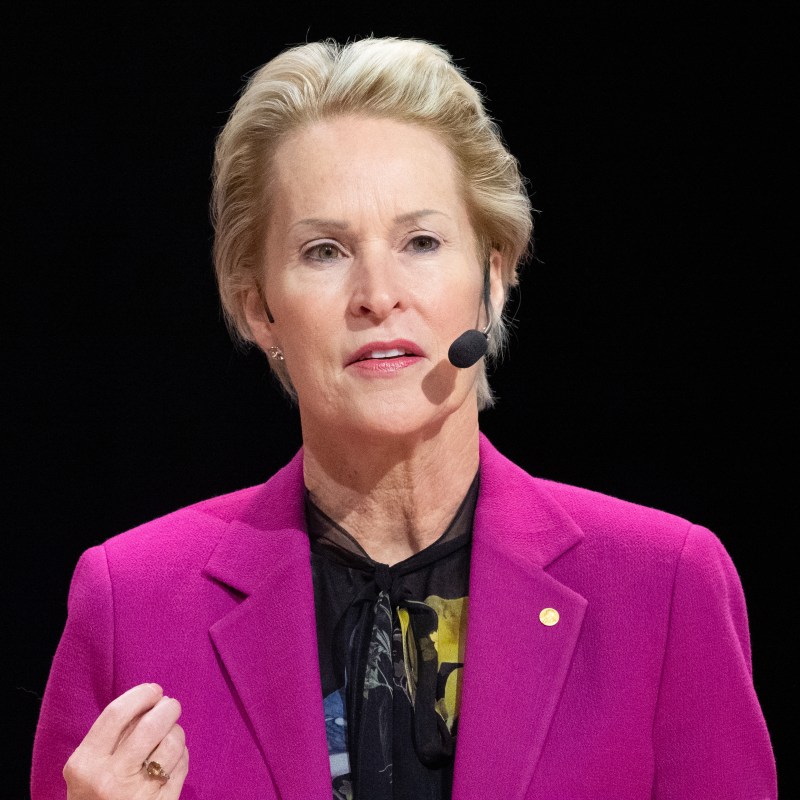A year after being awarded the Nobel Prize in Chemistry, Frances Arnold stood before a crowd at the Sapp Center to speak in the 2019 Biology-Chemistry Colloquium about her discoveries in the generation of novel enzymes through evolutionary stress and pressure. The Tuesday event highlighted the intersection of biology and chemistry and emphasized Arnold’s work to meld human-made chemistry and the natural chemistry of proteins.
Arnold, who is currently the Linus Pauling Professor of Chemical Engineering at the California Institute of Technology, discussed the value of nature and natural processes as building blocks for her research and how the pace of technological development has allowed her to “train” enzymes to perform functions and create bonds not found in biology. Specifically, Arnold cited her work in developing enzymes to form silicon-carbon bonds that have the potential to improve the sustainability of silicon-carbon bond formation in a variety of industries, including pharmaceuticals, technology and agriculture.
However, some in the media and on Twitter have misinterpreted her research, believing she was creating silicon-based life. But Arnold said in an interview with The Daily that she “loved the Twitterverse’s response to her paper because it shows [her] what people find interesting.”
Arnold added that Twitter is a nice medium for reaching lots of people and getting them to think about something that they wouldn’t think about otherwise. She “love[s] reaching out to a wider audience to see how they respond to ideas even if they don’t understand all the details.”
Arnold also warned against developing conclusions prior to experimentation.
“Nature doesn’t care about your calculations,” she said. She spoke about how colleagues’ perceptions on the impossibility of iron in a C-H insertion enzyme were a mistake that had limited their research. “I didn’t think it was impossible, I never believed it,” said Arnold, going on to credit Dr. Ruijie (Kelly) Zhang with the development of said “impossible” enzyme.
The Nobel Laureate described how her earlier discoveries in the optimization of enzymes toward new environments soon found industrial applications in laundry detergent and pharmaceuticals.
On being awarded the Nobel Prize, Arnold quipped that “luck is 99% of it,” but it is also important to “make sure you know when you’re lucky.” She also spoke about her meeting with Donna Strickland, the 2018 Nobel Laureate for Physics, and how it was the first time in history that two women won Nobel Prizes for science.
Before her career in biochemistry, Arnold pursued an undergraduate degree in Mechanical and Aerospace Engineering at Princeton University and demonstrated an interest in energy and environmental science. It was at the University of California, Berkeley where she developed her passion for biochemistry while completing her Ph.D. in Chemical Engineering.
For students interested in pursuing science, Arnold gave the following advice: it is important that you “do what you love, [and] find what you love.”
Contact Vincent Chim at vchim ‘at’ stanford.edu.
